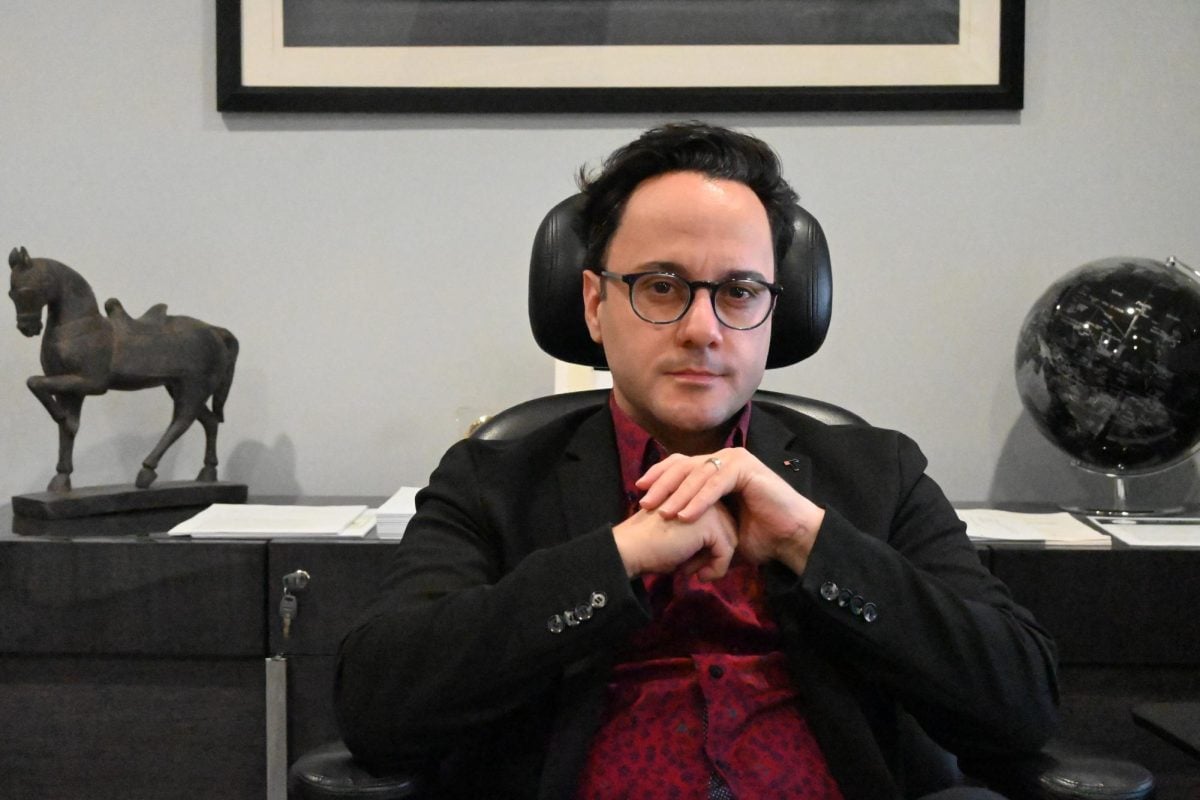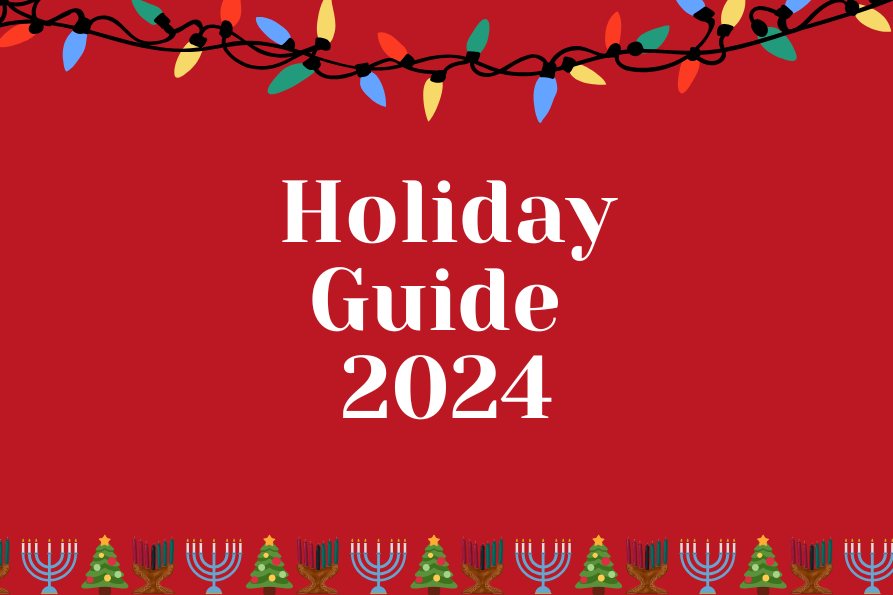If Donald Trump had been president when Evanston immigration lawyer Alen Takhsh was 13 years old, he might have never escaped the aftermath of the Iran-Iraq War and settled in the U.S. Had Trump occupied the Oval Office, Takhsh would have been barred under the “Muslim ban,” due to his Iranian nationality.
Three and a half decades after he made the journey from Iran to Germany — and then Germany to the U.S. — Takhsh is concerned that Trump’s anti-naturalization and mass deportation policies could make it difficult for immigrants like him to seek asylum and acquire U.S. citizenship.
“My colleagues and I were on the front lines of many of the policies that he had implemented,” Takhsh said. “When he left office, we felt as if we were suffering from PTSD.”
In his first term, Trump deported 1.5 million immigrants, forced many asylum seekers at the border to “remain in Mexico,” prevented the entry of parents of U.S. citizens, reduced the number of refugees allowed into the country, attempted to end the Deferred Action for Childhood Arrivals program and banned travelers from six Muslim-majority countries from entering the U.S., among other policies enforced largely by executive order.
Takhsh’s services primarily include helping immigrants’ families gain legal status, assisting with asylum applications and representing immigrants facing deportation in court. During the former president’s first term, Takhsh said Trump’s executive policies made it more difficult for courts to fairly adjudicate cases and limited communication between local asylum offices and immigration lawyers.
Under a second Trump presidency, Takhsh said the potential for increased enforcement by immigration enforcement personnel among those with Temporary Protected Status has stirred tension. Temporary Protected Status is a temporary immigration status provided to nationals of countries experiencing conflict, natural disaster or other dangerous factors, regardless of an individual immigrant’s circumstances.
Takhsh added that he’s already received “countless emails and phone calls” from clients voicing their fears. However, he said he feels better prepared this time around.
“The real fear is that a storm is brewing,” Takhsh said. “Unlike the first term under President Trump, we know what the storm may look like this time around.”
Brandon Lee, communications director of the Illinois Coalition for Immigrant and Refugee Rights, said the organization is gearing up to fight back against Trump’s possible heightened enforcement.
Lee said ICIRR plans to advocate for local and state laws that protect data on immigration status and ensure that local police will not coordinate with the U.S. Immigration and Customs Enforcement.
ICIRR will also conduct “know your rights” trainings to educate immigrants on how to interact with enforcement authorities and inform them about available legal services, organizations and health care they can access regardless of immigration status, Lee added.
In his 2024 reelection campaign, Trump vowed to reinstate the Muslim ban and the Remain in Mexico policy, end birthright citizenship, revoke Temporary Protected Status, and deport 20 million people he believes to be undocumented — greater than the roughly 11 million undocumented immigrants reported by the U.S. Census Bureau.
“Immigrant communities have been here before in terms of facing a Trump administration that was very hostile to our communities, trying to create fear,” Lee said. “We came together in the name of protecting one another and getting our communities through this very difficult time, and we’re prepared to do that again.”
Evanston City Council discussed a plan to convert a vacant office building into a migrant shelter in April. The city declined to take immediate action due to the building’s extensive renovation needs.
The plan would have housed “new arrivals” — undocumented immigrants who arrived on or after Aug. 1, 2022. Texas Gov. Greg Abbott bussed thousands of migrants to Wilmette’s Metra station earlier this year, and new arrivals have been directed to take trains to an intake zone in Chicago.
The Immigrant Legal Resource Center gives Illinois a 4.3 out of five score on protecting immigrants, tied with Oregon as the most protective state in the U.S. The state’s TRUST Act limits local and state law enforcement’s participation in federal immigration enforcement.
Local Evanston organizations are also stepping up to provide immigrants with resources to navigate potential challenges. One such organization is Latinos en Evanston North Shore.
More than 8,700 Hispanic people live in Evanston, according to the 2020 U.S. Census. Fabiola Zdrubecky, vice president and co-founder of LENS, said the “biggest impact” of the election results on the community has been emotional.
She mentioned widespread feelings of fear and uncertainty within the community, adding that Latino immigrants are particularly concerned about delays in immigration processes and a slowdown in communication.
Zdrubecky said the board of LENS met Sunday night to discuss the way forward. The organization plans to enhance its current social programs, such as “Los Años Dorados” and “English as a Second Language,” to better support the evolving needs of the Latino community. At “The Golden Years” event on Dec. 7 — a reference to one’s “golden years” — the team plans to check in on how Latino seniors are coping with the post-election climate.
“We want to enhance the programs that have been successful for many years, with the urgency of the election,” Zdrubecky said. “We have our priority, we are attentive to the needs of the Evanston community.”
LENS will finalize its annual plan for 2025, including program enhancements, by mid-December. Additionally, the group is planning to host an informational session on Dec. 17 to inform immigrants of their rights and what a Trump presidency might mean for them.
Zdrubecky said that despite the post-election tensions, she is confident in the resilience of the Latino community.
“I cannot envision making America great without Latino immigrants,” she said.
Takhsh echoed similar sentiments, emphasizing that immigrants are the cornerstone of this nation and that protecting their right to seek opportunity in the U.S. remains a cause worth fighting for.
“The America that I know — the America that my father risked everything to bring us to — is a welcoming nation regardless of the political rhetoric we are exposed to,” Takhsh said.
Clarification: This story has been updated to specify when Alen Takhsh immigrated to Germany from Iran and why he was impacted by the “Muslim ban.”
Email: [email protected]
X: @IsaiahStei27
Email: [email protected]






